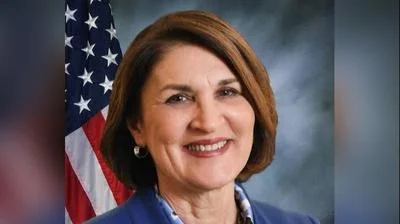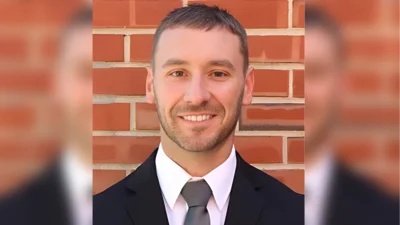Abraham Lincoln Memorial Hospital issued the following announcement on Jan. 25.
Several long-held pre- and postsurgical practices – fasting, heavy IV fluids, powerful post-op narcotics and bed rest – are being reexamined, as facilities like Passavant have adopted a set of “enhanced recovery” protocols to help surgery patients spend less time in the hospital, experience fewer complications and make a faster return to healthy living.
“It’s a more holistic approach that emphasizes the patient’s engagement and reduces the amount of stress on the body as the patient goes through that surgery process,” said Josh Newman, MSN, CRNA, Anesthesia department manager at Passavant.
The processes also allow patients to avoid narcotic or opioid pain medicine if they prefer.
Enhanced recovery was developed in 2001 by a group of academic surgeons in Europe, and was introduced at Passavant about two years ago. Passavant currently follows enhanced recovery protocols with patients undergoing open abdominal surgery, gynecological surgery, cesarean section or orthopedic surgery, with plans to expand the use of the protocols to benefit other types of surgery patients.
“We’ve seen some really impressive improvements on patient-reported pain when certain aspects of the protocol are followed,” said Newman. “It’s prompted us to begin using some version of enhanced recovery for nearly every surgery performed at Passavant.”
In early 2018, Simone Parlier, MSN, RN, nurse manager, and staff in the Passavant Family Maternity Suites implemented enhanced recovery protocols with non-emergency c-section patients.
“Within the first 13 c-sections, we saw huge improvements in [catheter] removal times, length of bed rest and [intravenous fluid use], which helps the patient get out of bed sooner,” said Parlier.
Outcomes are overwhelmingly positive, but one of the most encouraging results from using enhanced recovery has been the reduction in opioid use in postsurgical patients. “Enhanced recovery protocols have had a tremendous impact on our opioid usage,” said Parlier, “and it’s helping us do our part to help our community with that problem.”
Here’s how enhanced recovery is improving patient care at Passavant:
Then: Patients received basic information about their surgeries but mostly relied on doctors to facilitate recovery.
Now: Medical staff explain procedures in detail so patients know what to expect before, during and after surgery.
Why It Helps: “Engagement is huge,” said Newman. When patients feel invested in their own care, they are more likely to follow pre- and post-op instructions.
Then: No food or drink after midnight the evening before surgery.
Now: Guidelines vary, but most patients can eat solid foods up to eight hours pre-procedure, and many continue sipping clear liquids up to two hours before surgery.
Why It Helps: Fasting weakens the body. Well-hydrated patients report lower instances of nausea from anesthesia and pain medication. “By allowing patients to drink a carbohydrate beverage two hours prior to surgery, they are happier, their blood sugar levels are more normal and the body adapts to surgery better without additional risk,” said Newman.
Then: Intravenous fluids used generously after surgery.
Now: Patients who can drink water about 30 minutes after surgery often get enough fluids without the IV.
Why It Helps: Guesswork about fluids is eliminated. The body’s thirst mechanism is the most accurate indication of a patient’s level of dehydration.
Then: Surgery meant recovering in bed.
Now: Patients are encouraged to get up and move around within hours of surgery. “One of the most influential interventions we can do is transitioning patients back to the normal activities of daily living,” said Newman. “This means walking frequently, only using beds for sleeping and resuming eating and drinking as fast as the patient can tolerate.”
Why It Helps: Lying in bed too long can lead to bed sores, surgical site infections, pneumonia and blood clots. Being mobile helps the body recover more quickly.
Then: Morphine and other opioid painkillers were postsurgery mainstays.
Now: Doctors try non-narcotic pain relief measures, like Tylenol and regional anesthesia, before turning to opioids.
Why it Helps : A fleet of non-opioid painkillers can be just as effective, while avoiding potentially life-altering side effects like addiction.
“In shooting for these outcomes, the research shows, everything else tends to fall in line and the patient is not having [serious postsurgical complications],” said Newman. “If a patient is drinking, eating, mobilizing and sleeping, that patient is probably having a great outcome.”
Original source can be found here.

Source: Abraham Lincoln Memorial Hospital






 Alerts Sign-up
Alerts Sign-up